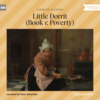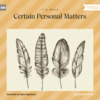Kitabı oku: «Beyond», sayfa 14
“I think that touches one more than the big, idealized sort. One feels it WAS like that. Oh! And look – the Francesca’s! Aren’t they lovely?”
He repeated:
“Yes; lovely!” But his eyes said: “And so are you.”
They spent two hours among those endless pictures, talking a little of art and of much besides, almost as alone as in the railway carriage. But, when she had refused to let him walk back with her, Summerhay stood stock-still beneath the colonnade. The sun streamed in under; the pigeons preened their feathers; people passed behind him and down there in the square, black and tiny against the lions and the great column. He took in nothing of all that. What was it in her? She was like no one he had ever known – not one! Different from girls and women in society as – Simile failed. Still more different from anything in the half-world he had met! Not the new sort – college, suffrage! Like no one! And he knew so little of her! Not even whether she had ever really been in love. Her husband – where was he; what was he to her? “The rare, the mute, the inexpressive She!” When she smiled; when her eyes – but her eyes were so quick, would drop before he could see right into them! How beautiful she had looked, gazing at that picture – her favourite, so softly, her lips just smiling! If he could kiss them, would he not go nearly mad? With a deep sigh, he moved down the wide, grey steps into the sunlight. And London, throbbing, overflowing with the season’s life, seemed to him empty. To-morrow – yes, to-morrow he could call!
IV
After that Sunday call, Gyp sat in the window at Bury Street close to a bowl of heliotrope on the window-sill. She was thinking over a passage of their conversation.
“Mrs. Fiorsen, tell me about yourself.”
“Why? What do you want to know?”
“Your marriage?”
“I made a fearful mistake – against my father’s wish. I haven’t seen my husband for months; I shall never see him again if I can help it. Is that enough?”
“And you love him?”
“No.”
“It must be like having your head in chancery. Can’t you get it out?”
“No.”
“Why?”
“Divorce-court! Ugh! I couldn’t!”
“Yes, I know – it’s hellish!”
Was he, who gripped her hand so hard and said that, really the same nonchalant young man who had leaned out of the carriage window, gurgling with laughter? And what had made the difference? She buried her face in the heliotrope, whose perfume seemed the memory of his visit; then, going to the piano, began to play. She played Debussy, McDowell, Ravel; the chords of modern music suited her feelings just then. And she was still playing when her father came in. During these last nine months of his daughter’s society, he had regained a distinct measure of youthfulness, an extra twist in his little moustache, an extra touch of dandyism in his clothes, and the gloss of his short hair. Gyp stopped playing at once, and shut the piano.
“Mr. Summerhay’s been here, Dad. He was sorry to miss you.”
There was an appreciable pause before Winton answered:
“My dear, I doubt it.”
And there passed through Gyp the thought that she could never again be friends with a man without giving that pause. Then, conscious that her father was gazing at her, she turned and said:
“Well, was it nice in the Park?”
“Thirty years ago they were all nobs and snobs; now God himself doesn’t know what they are!”
“But weren’t the flowers nice?”
“Ah – and the trees, and the birds – but, by Jove, the humans do their best to dress the balance!”
“What a misanthrope you’re getting!”
“I’d like to run a stud for two-leggers; they want proper breeding. What sort of a fellow is young Summerhay? Not a bad face.”
She answered impassively:
“Yes; it’s so alive.”
In spite of his self-control, she could always read her father’s thoughts quicker than he could read hers, and knew that he was struggling between the wish that she should have a good time and the desire to convey some kind of warning. He said, with a sigh:
“What does a young man’s fancy turn to in summer, Gyp?”
Women who have subtle instincts and some experience are able to impose their own restraint on those who, at the lifting of a hand, would become their lovers. From that afternoon on, Gyp knew that a word from her would change everything; but she was far from speaking it. And yet, except at week-ends, when she went back to her baby at Mildenham, she saw Summerhay most days – in the Row, at the opera, or at Bury Street. She had a habit of going to St. James’s Park in the late afternoon and sitting there by the water. Was it by chance that he passed one day on his way home from chambers, and that, after this, they sat there together constantly? Why make her father uneasy – when there was nothing to be uneasy about – by letting him come too often to Bury Street? It was so pleasant, too, out there, talking calmly of many things, while in front of them the small ragged children fished and put the fishes into clear glass bottles, to eat, or watch on rainy days, as is the custom of man with the minor works of God.
So, in nature, when the seasons are about to change, the days pass, tranquil, waiting for the wind that brings in the new. And was it not natural to sit under the trees, by the flowers and the water, the pigeons and the ducks, that wonderful July? For all was peaceful in Gyp’s mind, except, now and then, when a sort of remorse possessed her, a sort of terror, and a sort of troubling sweetness.
V
Summerhay did not wear his heart on his sleeve, and when, on the closing-day of term, he left his chambers to walk to that last meeting, his face was much as usual under his grey top hat. But, in truth, he had come to a pretty pass. He had his own code of what was befitting to a gentleman. It was perhaps a trifle “old Georgian,” but it included doing nothing to distress a woman. All these weeks he had kept himself in hand; but to do so had cost him more than he liked to reflect on. The only witness of his struggles was his old Scotch terrier, whose dreams he had disturbed night after night, tramping up and down the long back-to-front sitting-room of his little house. She knew – must know – what he was feeling. If she wanted his love, she had but to raise her finger; and she had not raised it. When he touched her, when her dress disengaged its perfume or his eyes traced the slow, soft movement of her breathing, his head would go round, and to keep calm and friendly had been torture.
While he could see her almost every day, this control had been just possible; but now that he was about to lose her – for weeks – his heart felt sick within him. He had been hard put to it before the world. A man passionately in love craves solitude, in which to alternate between fierce exercise and that trance-like stillness when a lover simply aches or is busy conjuring her face up out of darkness or the sunlight. He had managed to do his work, had been grateful for having it to do; but to his friends he had not given attention enough to prevent them saying: “What’s up with old Bryan?” Always rather elusive in his movements, he was now too elusive altogether for those who had been accustomed to lunch, dine, dance, and sport with him. And yet he shunned his own company – going wherever strange faces, life, anything distracted him a little, without demanding real attention. It must be confessed that he had come unwillingly to discovery of the depth of his passion, aware that it meant giving up too much. But there are women who inspire feeling so direct and simple that reason does not come into play; and he had never asked himself whether Gyp was worth loving, whether she had this or that quality, such or such virtue. He wanted her exactly as she was; and did not weigh her in any sort of balance. It is possible for men to love passionately, yet know that their passion is but desire, possible for men to love for sheer spiritual worth, feeling that the loved one lacks this or that charm.
Summerhay’s love had no such divided consciousness. About her past, too, he dismissed speculation. He remembered having heard in the hunting-field that she was Winton’s natural daughter; even then it had made him long to punch the head of that covertside scandal-monger. The more there might be against the desirability of loving her, the more he would love her; even her wretched marriage only affected him in so far as it affected her happiness. It did not matter – nothing mattered except to see her and be with her as much as she would let him. And now she was going to the sea for a month, and he himself – curse it! – was due in Perthshire to shoot grouse. A month!
He walked slowly along the river. Dared he speak? At times, her face was like a child’s when it expects some harsh or frightening word. One could not hurt her – impossible! But, at times, he had almost thought she would like him to speak. Once or twice he had caught a slow soft glance – gone the moment he had sight of it.
He was before his time, and, leaning on the river parapet, watched the tide run down. The sun shone on the water, brightening its yellowish swirl, and little black eddies – the same water that had flowed along under the willows past Eynsham, past Oxford, under the church at Clifton, past Moulsford, past Sonning. And he thought: ‘My God! To have her to myself one day on the river – one whole long day!’ Why had he been so pusillanimous all this time? He passed his hand over his face. Broad faces do not easily grow thin, but his felt thin to him, and this gave him a kind of morbid satisfaction. If she knew how he was longing, how he suffered! He turned away, toward Whitehall. Two men he knew stopped to bandy a jest. One of them was just married. They, too, were off to Scotland for the twelfth. Pah! How stale and flat seemed that which till then had been the acme of the whole year to him! Ah, but if he had been going to Scotland WITH HER! He drew his breath in with a sigh that nearly removed the Home Office.
Oblivious of the gorgeous sentries at the Horse Guards, oblivious of all beauty, he passed irresolute along the water, making for their usual seat; already, in fancy, he was sitting there, prodding at the gravel, a nervous twittering in his heart, and that eternal question: Dare I speak? asking itself within him. And suddenly he saw that she was before him, sitting there already. His heart gave a jump. No more craning – he WOULD speak!
She was wearing a maize-coloured muslin to which the sunlight gave a sort of transparency, and sat, leaning back, her knees crossed, one hand resting on the knob of her furled sunshade, her face half hidden by her shady hat. Summerhay clenched his teeth, and went straight up to her.
“Gyp! No, I won’t call you anything else. This can’t go on! You know it can’t. You know I worship you! If you can’t love me, I’ve got to break away. All day, all night, I think and dream of nothing but you. Gyp, do you want me to go?”
Suppose she said: “Yes, go!” She made a little movement, as if in protest, and without looking at him, answered very low:
“Of course I don’t want you to go. How could I?”
Summerhay gasped.
“Then you DO love me?”
She turned her face away.
“Wait, please. Wait a little longer. When we come back I’ll tell you: I promise!”
“So long?”
“A month. Is that long? Please! It’s not easy for me.” She smiled faintly, lifted her eyes to him just for a second. “Please not any more now.”
That evening at his club, through the bluish smoke of cigarette after cigarette, he saw her face as she had lifted it for that one second; and now he was in heaven, now in hell.
VI
The verandahed bungalow on the South Coast, built and inhabited by an artist friend of Aunt Rosamund’s, had a garden of which the chief feature was one pine-tree which had strayed in advance of the wood behind. The little house stood in solitude, just above a low bank of cliff whence the beach sank in sandy ridges. The verandah and thick pine wood gave ample shade, and the beach all the sun and sea air needful to tan little Gyp, a fat, tumbling soul, as her mother had been at the same age, incurably fond and fearless of dogs or any kind of beast, and speaking words already that required a glossary.
At night, Gyp, looking from her bedroom through the flat branches of the pine, would get a feeling of being the only creature in the world. The crinkled, silvery sea, that lonely pine-tree, the cold moon, the sky dark corn-flower blue, the hiss and sucking rustle of the surf over the beach pebbles, even the salt, chill air, seemed lonely. By day, too – in the hazy heat when the clouds merged, scarce drifting, into the blue, and the coarse sea-grass tufts hardly quivered, and sea-birds passed close above the water with chuckle and cry – it all often seemed part of a dream. She bathed, and grew as tanned as her little daughter, a regular Gypsy, in her broad hat and linen frocks; and yet she hardly seemed to be living down here at all, for she was never free of the memory of that last meeting with Summerhay. Why had he spoken and put an end to their quiet friendship, and left her to such heart-searchings all by herself? But she did not want his words unsaid. Only, how to know whether to recoil and fly, or to pass beyond the dread of letting herself go, of plunging deep into the unknown depths of love – of that passion, whose nature for the first time she had tremulously felt, watching “Pagliacci” – and had ever since been feeling and trembling at! Must it really be neck or nothing? Did she care enough to break through all barriers, fling herself into midstream? When they could see each other every day, it was so easy to live for the next meeting – not think of what was coming after. But now, with all else cut away, there was only the future to think about – hers and his. But need she trouble about his? Would he not just love her as long as he liked?
Then she thought of her father – still faithful to a memory – and felt ashamed. Some men loved on – yes – even beyond death! But, sometimes, she would think: ‘Am I a candle-flame again? Is he just going to burn himself? What real good can I be to him – I, without freedom, and with my baby, who will grow up?’ Yet all these thoughts were, in a way, unreal. The struggle was in herself, so deep that she could hardly understand it; as might be an effort to subdue the instinctive dread of a precipice. And she would feel a kind of resentment against all the happy life round her these summer days – the sea-birds, the sunlight, and the waves; the white sails far out; the calm sun-steeped pine-trees; her baby, tumbling and smiling and softly twittering; and Betty and the other servants – all this life that seemed so simple and untortured.
To the one post each day she looked forward terribly. And yet his letters, which began like hers: “My dear friend,” might have been read by anyone – almost. She spent a long time over her answers. She was not sleeping well; and, lying awake, she could see his face very distinct before her closed eyes – its teasing, lazy smile, its sudden intent gravity. Once she had a dream of him, rushing past her down into the sea. She called, but, without turning his head, he swam out further, further, till she lost sight of him, and woke up suddenly with a pain in her heart. “If you can’t love me, I’ve got to break away!” His face, his flung-back head reminded her too sharply of those words. Now that he was away from her, would he not feel that it was best to break, and forget her? Up there, he would meet girls untouched by life – not like herself. He had everything before him; could he possibly go on wanting one who had nothing before her? Some blue-eyed girl with auburn hair – that type so superior to her own – would sweep, perhaps had already swept him, away from her! What then? No worse than it used to be? Ah, so much worse that she dared not think of it!
Then, for five days, no letter came. And, with each blank morning, the ache in her grew – a sharp, definite ache of longing and jealousy, utterly unlike the mere feeling of outraged pride when she had surprised Fiorsen and Daphne Wing in the music-room – a hundred years ago, it seemed. When on the fifth day the postman left nothing but a bill for little Gyp’s shoes, and a note from Aunt Rosamund at Harrogate, where she had gone with Winton for the annual cure, Gyp’s heart sank to the depths. Was this the end? And, with a blind, numb feeling, she wandered out into the wood, where the fall of the pine-needles, season after season, had made of the ground one soft, dark, dust-coloured bed, on which the sunlight traced the pattern of the pine boughs, and ants rummaged about their great heaped dwellings.
Gyp went along till she could see no outer world for the grey-brown tree-stems streaked with gum-resin; and, throwing herself down on her face, dug her elbows deep into the pine dust. Tears, so rare with her, forced their way up, and trickled slowly to the hands whereon her chin rested. No good – crying! Crying only made her ill; crying was no relief. She turned over on her back and lay motionless, the sunbeams warm on her cheeks. Silent here, even at noon! The sough of the calm sea could not reach so far; the flies were few; no bird sang. The tall bare pine stems rose up all round like columns in a temple roofed with the dark boughs and sky. Cloud-fleeces drifted slowly over the blue. There should be peace – but in her heart there was none!
A dusky shape came padding through the trees a little way off, another – two donkeys loose from somewhere, who stood licking each other’s necks and noses. Those two humble beasts, so friendly, made her feel ashamed. Why should she be sorry for herself, she who had everything in life she wanted – except love – the love she had thought she would never want? Ah, but she wanted it now, wanted it at last with all her being!
With a shudder, she sprang up; the ants had got to her, and she had to pick them off her neck and dress. She wandered back towards the beach. If he had truly found someone to fill his thoughts, and drive her out, all the better for him; she would never, by word or sign, show him that she missed, and wanted him – never! She would sooner die!
She came out into the sunshine. The tide was low; and the wet foreshore gleamed with opal tints; there were wandering tracks on the sea, as of great serpents winding their way beneath the surface; and away to the west the archwayed, tawny rock that cut off the line of coast was like a dream-shape. All was dreamy. And, suddenly her heart began beating to suffocation and the colour flooded up in her cheeks. On the edge of the low cliff bank, by the side of the path, Summerhay was sitting!
He got up and came toward her. Putting her hands up to her glowing face, she said:
“Yes; it’s me. Did you ever see such a gipsified object? I thought you were still in Scotland. How’s dear Ossy?” Then her self-possession failed, and she looked down.
“It’s no good, Gyp. I must know.”
It seemed to Gyp that her heart had given up beating; she said quietly: “Let’s sit down a minute”; and moved under the cliff bank where they could not be seen from the house. There, drawing the coarse grass blades through her fingers, she said, with a shiver:
“I didn’t try to make you, did I? I never tried.”
“No; never.”
“It’s wrong.”
“Who cares? No one could care who loves as I do. Oh, Gyp, can’t you love me? I know I’m nothing much.” How quaint and boyish! “But it’s eleven weeks to-day since we met in the train. I don’t think I’ve had one minute’s let-up since.”
“Have you tried?”
“Why should I, when I love you?”
Gyp sighed; relief, delight, pain – she did not know.
“Then what is to be done? Look over there – that bit of blue in the grass is my baby daughter. There’s her – and my father – and – ”
“And what?”
“I’m afraid – afraid of love, Bryan!”
At that first use of his name, Summerhay turned pale and seized her hand.
“Afraid – how – afraid?”
Gyp said very low:
“I might love too much. Don’t say any more now. No; don’t! Let’s go in and have lunch.” And she got up.
He stayed till tea-time, and not a word more of love did he speak. But when he was gone, she sat under the pine-tree with little Gyp on her lap. Love! If her mother had checked love, she herself would never have been born. The midges were biting before she went in. After watching Betty give little Gyp her bath, she crossed the passage to her bedroom and leaned out of the window. Could it have been to-day she had lain on the ground with tears of despair running down on to her hands? Away to the left of the pine-tree, the moon had floated up, soft, barely visible in the paling sky. A new world, an enchanted garden! And between her and it – what was there?
That evening she sat with a book on her lap, not reading; and in her went on the strange revolution which comes in the souls of all women who are not half-men when first they love – the sinking of ‘I’ into ‘Thou,’ the passionate, spiritual subjection, the intense, unconscious giving-up of will, in preparation for completer union.
She slept without dreaming, awoke heavy and oppressed. Too languid to bathe, she sat listless on the beach with little Gyp all the morning. Had she energy or spirit to meet him in the afternoon by the rock archway, as she had promised? For the first time since she was a small and naughty child, she avoided the eyes of Betty. One could not be afraid of that stout, devoted soul, but one could feel that she knew too much. When the time came, after early tea, she started out; for if she did not go, he would come, and she did not want the servants to see him two days running.
This last day of August was warm and still, and had a kind of beneficence – the corn all gathered in, the apples mellowing, robins singing already, a few slumberous, soft clouds, a pale blue sky, a smiling sea. She went inland, across the stream, and took a footpath back to the shore. No pines grew on that side, where the soil was richer – of a ruddy brown. The second crops of clover were already high; in them humblebees were hard at work; and, above, the white-throated swallows dipped and soared. Gyp gathered a bunch of chicory flowers. She was close above the shore before she saw him standing in the rock archway, looking for her across the beach. After the hum of the bees and flies, it was very quiet here – only the faintest hiss of tiny waves. He had not yet heard her coming, and the thought flashed through her: ‘If I take another step, it is for ever! She stood there scarcely breathing, the chicory flowers held before her lips. Then she heard him sigh, and, moving quickly forward, said:
“Here I am.”
He turned round, seized her hand, and, without a word, they passed through the archway. They walked on the hard sand, side by side, till he said:
“Let’s go up into the fields.”
They scrambled up the low cliff and went along the grassy top to a gate into a stubble field. He held it open for her, but, as she passed, caught her in his arms and kissed her lips as if he would never stop. To her, who had been kissed a thousand times, it was the first kiss. Deadly pale, she fell back from him against the gate; then, her lips still quivering, her eyes very dark, she looked at him distraught with passion, drunk on that kiss. And, suddenly turning round to the gate, she laid her arms on the top bar and buried her face on them. A sob came up in her throat that seemed to tear her to bits, and she cried as if her heart would break. His timid despairing touches, his voice close to her ear:
“Gyp, Gyp! My darling! My love! Oh, don’t, Gyp!” were not of the least avail; she could not stop. That kiss had broken down something in her soul, swept away her life up to that moment, done something terrible and wonderful. At last, she struggled out:
“I’m sorry – so sorry! Don’t – don’t look at me! Go away a little, and I’ll – I’ll be all right.”
He obeyed without a word, and, passing through the gate, sat down on the edge of the cliff with his back to her, looking out over the sea.
Gripping the wood of the old grey gate till it hurt her hands, Gyp gazed at the chicory flowers and poppies that had grown up again in the stubble field, at the butterflies chasing in the sunlight over the hedge toward the crinkly foam edging the quiet sea till they were but fluttering white specks in the blue.
But when she had rubbed her cheeks and smoothed her face, she was no nearer to feeling that she could trust herself. What had happened in her was too violent, too sweet, too terrifying. And going up to him she said:
“Let me go home now by myself. Please, let me go, dear. To-morrow!”
Summerhay looked up.
“Whatever you wish, Gyp – always!”
He pressed her hand against his cheek, then let it go, and, folding his arms tight, resumed his meaningless stare at the sea. Gyp turned away. She crossed back to the other side of the stream, but did not go in for a long time, sitting in the pine wood till the evening gathered and the stars crept out in a sky of that mauve-blue which the psychic say is the soul-garment colour of the good.
Late that night, when she had finished brushing her hair, she opened her window and stepped out on to the verandah. How warm! How still! Not a sound from the sleeping house – not a breath of wind! Her face, framed in her hair, her hands, and all her body, felt as if on fire. The moon behind the pine-tree branches was filling every cranny of her brain with wakefulness. The soft shiver of the wellnigh surfless sea on a rising tide, rose, fell, rose, fell. The sand cliff shone like a bank of snow. And all was inhabited, as a moonlit night is wont to be, by a magical Presence. A big moth went past her face, so close that she felt the flutter of its wings. A little night beast somewhere was scruttling in bushes or the sand. Suddenly, across the wan grass the shadow of the pine-trunk moved. It moved – ever so little – moved! And, petrified – Gyp stared. There, joined to the trunk, Summerhay was standing, his face just visible against the stem, the moonlight on one cheek, a hand shading his eyes. He moved that hand, held it out in supplication. For long – how long – Gyp did not stir, looking straight at that beseeching figure. Then, with a feeling she had never known, she saw him coming. He came up to the verandah and stood looking up at her. She could see all the workings of his face – passion, reverence, above all amazement; and she heard his awed whisper:
“Is it you, Gyp? Really you? You look so young – so young!”
VII
From the moment of surrender, Gyp passed straight into a state the more enchanted because she had never believed in it, had never thought that she could love as she now loved. Days and nights went by in a sort of dream, and when Summerhay was not with her, she was simply waiting with a smile on her lips for the next hour of meeting. Just as she had never felt it possible to admit the world into the secrets of her married life, so, now she did not consider the world at all. Only the thought of her father weighed on her conscience. He was back in town. And she felt that she must tell him. When Summerhay heard this he only said: “All right, Gyp, whatever you think best.”
And two days before her month at the bungalow was up, she went, leaving Betty and little Gyp to follow on the last day. Winton, pale and somewhat languid, as men are when they have been cured, found her when he came in from the club. She had put on evening dress, and above the pallor of her shoulders, her sunwarmed face and throat had almost the colour of a nectarine. He had never seen her look like that, never seen her eyes so full of light. And he uttered a quiet grunt of satisfaction. It was as if a flower, which he had last seen in close and elegant shape, had bloomed in full perfection. She did not meet his gaze quite steadily and all that evening kept putting her confession off and off. It was not easy – far from easy. At last, when he was smoking his “go-to-bed” cigarette, she took a cushion and sank down on it beside his chair, leaning against his knee, where her face was hidden from him, as on that day after her first ball, when she had listened to HIS confession. And she began:
“Dad, do you remember my saying once that I didn’t understand what you and my mother felt for each other?” Winton did not speak; misgiving had taken possession of him. Gyp went on: “I know now how one would rather die than give someone up.”
Winton drew his breath in sharply:
“Who? Summerhay?”
“Yes; I used to think I should never be in love, but you knew better.”
Better!
In disconsolate silence, he thought rapidly: ‘What’s to be done? What can I do? Get her a divorce?’
Perhaps because of the ring in her voice, or the sheer seriousness of the position, he did not feel resentment as when he lost her to Fiorsen. Love! A passion such as had overtaken her mother and himself! And this young man? A decent fellow, a good rider – comprehensible! Ah, if the course had only been clear! He put his hand on her shoulder and said:
“Well, Gyp, we must go for the divorce, then, after all.”
She shook her head.
“It’s too late. Let HIM divorce me, if he only will!”
Winton needed all his self-control at that moment. Too late? Already! Sudden recollection that he had not the right to say a word alone kept him silent. Gyp went on:
“I love him, with every bit of me. I don’t care what comes – whether it’s open or secret. I don’t care what anybody thinks.”
She had turned round now, and if Winton had doubt of her feeling, he lost it. This was a Gyp he had never seen! A glowing, soft, quick-breathing creature, with just that lithe watchful look of the mother cat or lioness whose whelps are threatened. There flashed through him a recollection of how, as a child, with face very tense, she would ride at fences that were too big. At last he said:
“I’m sorry you didn’t tell me sooner.”
“I couldn’t. I didn’t know. Oh, Dad, I’m always hurting you! Forgive me!”
She was pressing his hand to her cheek that felt burning hot. And he thought: “Forgive! Of course I forgive. That’s not the point; the point is – ”
















